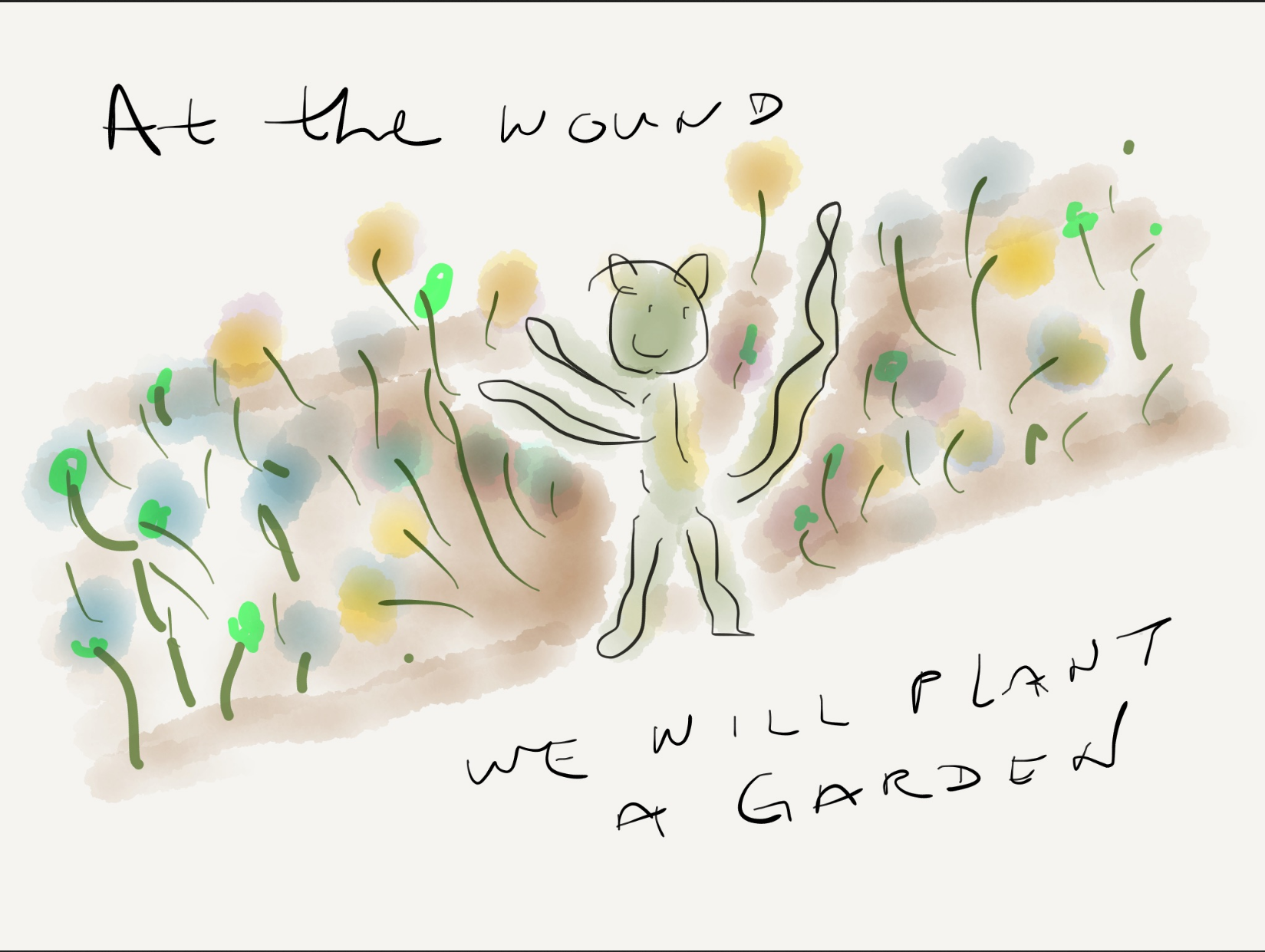An Open Letter to My Colon
An Open Letter to My Colon
In Memory of Platoon 2A, Sigmoid Sector, Near Serosal Wall
Dear Colon,
First, I am sorry that I did not know you well–did not know your names, your layers, your length. I can dissect a sentence, discuss archaic verb tenses, conjugate Latin, but I cannot anatomically name my body parts. You didn’t mind. You had a job to do. But then you called me–no doubt first softly, but I did not hear; then louder and here we are.
On this four month anniversary of our surgery, the conclusion of your battle, we are planting flowers—healthy flora—along the places where you were cut, sacrificed in service to life. Where there was a wound, and then a mending, there will be a garden. Keezel, my fiercest of all fierce monkeys, tends the garden, plants the seeds, breathes in the fragrance of the flowers. We are reconstructing our physical form through our images and our stories. We are being assisted with plant medicines, gifts from trees, and pure water. We have a physician-guide for our physical rebuilding who sees us not as our pathology, but as our wholeness, and we have guides for our soul rebuilding—some we know in daily life, others virtually, and others only through texts and art and music. We are not alone.
This morning, Keezel said we should build a bridge across the scars and fill the pond with koi that will shimmer and flicker and flow with the movement of the water, waste, and unneeded energies that pass through the colon’s walls every minute of every day. We will fill this inner underworld with sparkle. We will keep the energy in motion. We will visit this bridge, this garden, these flowers and koi, every day.
Today, we erect an historical marker:
On this spot, March 8, 2017, the Battle in Service to Life Ended.
Sacrificed: 10 inches of sigmoid colon
Platoon 2A, we are grateful for your service.
I have now named every part of my body—not the anatomical terms—those clinical words don’t reach my soul. But I have named the organs nonetheless, created characters for them, engaged in dialogue with them and allowed them to be in dialogue with each other. I say hello, every day, to them. I rub my belly; I trace her scars and anoint them with Vitamin E oil; I whisper, “thank you.” I visit the memorial garden in my mind. I kiss the new flowers, and I honor the sacrifice of tissue, cells, and energy that had to happen in the service of life.
Colon, you are remarkable. You held the chaotic cells back. You protected the perimeter — the serosal wall, the last line of defense before metastasis — at great personal cost. You fought valiantly to ensure the tumor remained encapsulated and did not extend its chaos into the lymph. For this, you were brought into the light of surgery and removed. For performing your work perfectly, you were taken.
Some people say that a cancer diagnosis feels like a betrayal of the body, but I don’t feel that way. I feel that you defended me at the cost of your own existence. You fought so hard, and you bled and you bled and it was through that bleeding that I knew. It was through that bleeding that you sent the message: Help us. We can no longer do this alone. And it was through that bleeding that you reached out to me in the service of life.
This is anything but betrayal. It is the deepest love.
I promise you I will work only with healers who are capable of seeing us as whole, not as data points or labels or stages. I will engage only with those who understand the power of life to be alive. You, who have lain down your life for me—for us—have through that sacrifice offered tremendous gifts, not the least of which is bringing my body back together again. You have introduced us to one another and filled the cells and abdominal cavity with golden light.
I am sorry to no longer have you in my body, but you are in my soul, and your spirit infuses my days and my dreams.
Thank you for your service to life, to love, to us.
Laraine
July 8, 2017
